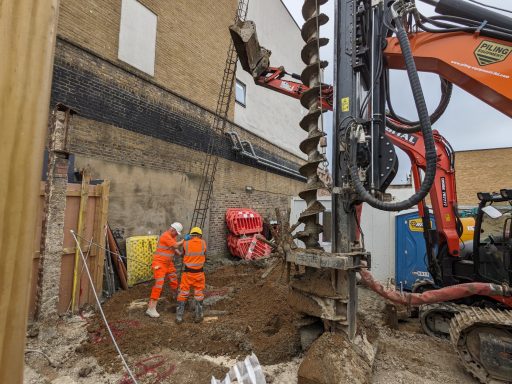Building Owners & Developers
Early expert advice can highlight potential obstacles, help to optimise development potential and influence cost and programme.
If you are planning building works in England & Wales, you need to comply with the Party Wall etc. Act 1996. It is a legal requirement for a Building Owner to serve a notice on an Adjoining Owner prior to executing works to which the Act relates. This includes building on the line of junction (the property boundary on the ground); works to existing party structures; and certain works involving excavation and construction below ground. The statutory notice periods are 1 or 2 months depending on the type of work.
You will be responsible for any damage to the Adjoining Owner’s or adjoining occupier’s property arising from your works.
In certain circumstances, an Adjoining Owner may serve a counter notice on the Building Owner requiring works to be carried out for their benefit.
The Act also allows Adjoining Owners to serve notice requiring security for expenses from the Building Owner before the works commence. This is typically to cover the potential expense of reinstatement works should the works not be completed for whatever reason. In certain circumstances, the Building Owner can request security from the Adjoining Owner.
If the Adjoining Owner dissents to your proposals contained in the notice this gives rise to a dispute under the Act. lf the Adjoining Owner fails to respond positively within 14 days of the notice being served a dispute shall be deemed to have arisen under the Act (except in the case of works under s.1). Where a dispute arises or is deemed to have arisen it must be resolved by surveyors in accordance with s.10 of the Act. The parties must then either concur in the appointment of a single ‘agreed surveyor’, or each appoint their own surveyor to resolve the dispute by way of an Award.
An Award is a formal and legally binding determination made by the appointed surveyor(s) that allows the notified works to proceed and defines the rights and obligations of the parties according to the terms specified therein. It will name the parties and the relevant properties and may include drawings, method statements and other pertinent information. The Award will typically also contain a schedule of condition that records the state of the Adjoining Owner’s property before the start of the works. The Award is served on the parties and they each have a right of appeal to the County Court within 14 days. If no appeal is made, the Award is conclusive and cannot then be challenged in any court.
If damage arises to the Adjoining Owner’s or occupier’s property and the parties are unable to agree the cause, extent or remedy, the matter in dispute can be referred to the surveyors for determination by way of a further Award.
Commencing works to which the Act relate without complying with the legislation is unlawful and exposes you to the risk of a court injunction to restrain you from continuing the works until such time as the Act is complied with. Such an event can be highly disruptive and very costly. You could also face civil claims for breach of statutory duty, nuisance, trespass, loss and damages.
We need your consent to load the translations
We use a third-party service to translate the website content that may collect data about your activity. Please review the details in the privacy policy and accept the service to view the translations.



